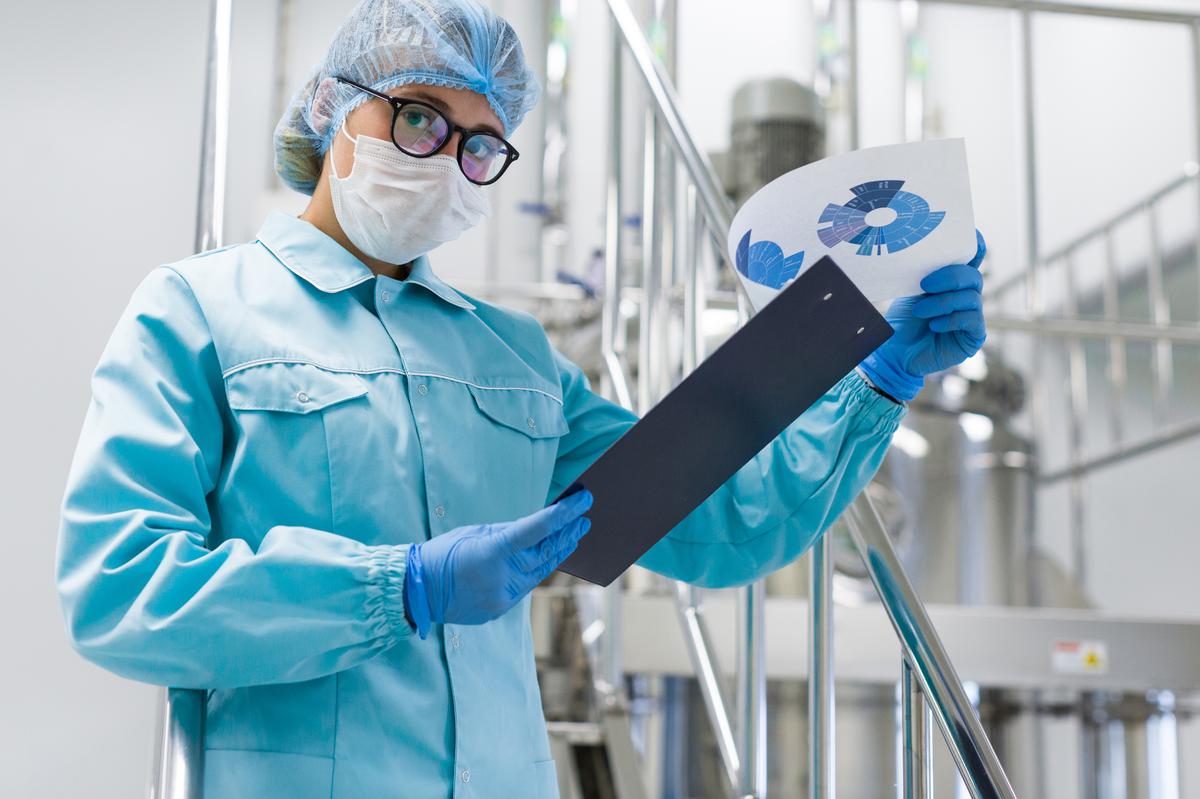Mastering Sterile Supply Processing: Your Guide to a Vital Healthcare Career
Sterile supply processing technicians play a crucial behind-the-scenes role in healthcare. They ensure medical instruments are safe and ready for use. Ready to learn more? Let's dive in!

What Does a Sterile Supply Processing Technician Do? 🔍🧼
Sterile supply processing technicians, sometimes called central service technicians, are responsible for cleaning, disinfecting, sterilizing, and organizing surgical instruments and medical equipment. Their work directly impacts patient safety and the smooth operation of healthcare facilities. Without their meticulous efforts, surgeries and medical procedures couldn't happen safely. 🛠️⚕️
Their daily tasks include:
- Decontaminating used instruments to eliminate germs and contaminants. 🧴
- Assembling instrument trays tailored for specific procedures. 🧰
- Operating sterilization machines like autoclaves to ensure equipment is sterile. ♨️
- Managing inventory and tracking supplies to avoid shortages. 📦
- Performing quality control checks to maintain high safety standards. ✅
They often work in hospitals, surgical centers, outpatient clinics, dental offices, and even research labs. The environment can be fast-paced, especially in large hospitals where quick turnaround of instruments is critical. ⏱️🏥
Education & Training Pathways: How to Get Started 🎓📚
Most employers require at least a high school diploma or equivalent. However, specialized training is essential to gain the skills needed for this role. Many community colleges, trade schools, and online platforms offer targeted programs that last from a few months up to 8 months, awarding certificates or diplomas upon completion.
Certification is a major advantage. Credentials such as the Certified Registered Central Service Technician (CRCST) or certifications from the Certification Board for Sterile Processing and Distribution (CBSPD) demonstrate your expertise and improve job prospects. These certifications usually require a combination of coursework, hands-on experience (often around 400 hours), and passing an exam. 🎖️
If you want to explore training options, many institutions provide flexible courses that blend online learning with practical experience. For example, checking out local community colleges or searching for a "central sterile technician course near me" can uncover excellent opportunities tailored to your schedule. Additionally, some programs offer paid healthcare training options, helping you earn while you learn. 💼💡
Career Outlook & Salary Insights 📈💰
The demand for sterile supply processing technicians is strong and expected to grow steadily. Here's why:
- The aging population increases the need for surgeries and medical procedures, driving demand for sterile processing professionals. 👵👴
- Healthcare facilities continue to expand and adopt new technologies, requiring skilled technicians to manage complex equipment. 🤖
- New roles are emerging, including specialists in robotic surgical instrument sterilization and advanced disinfection techniques.
Job Growth & Salary Overview
| 📊 Metric | 📅 Data / Stats | 💬 Notes |
|---|---|---|
| Projected Job Growth (2021-2031) | 6% (as fast as average) | Steady demand expected |
| Average Annual Salary | $60,000 - $63,000 | Varies by location and experience |
| Weekly Pay Range | $500 - $2,400 | Reflects entry to senior levels |
| Certification Impact | +10-20% salary increase | Certified techs earn more |
| Typical Training Duration | 4 to 8 months | Certificate or diploma programs |
With experience and certification, many technicians advance to supervisory or managerial roles, expanding their earning potential and responsibilities. 🌟
Essential Skills & Qualities for Success 🛠️✨
To thrive in this role, certain skills and personal qualities are key:
- Attention to Detail: Ensuring instruments are thoroughly sterilized and correctly assembled. 🔎
- Manual Dexterity: Handling delicate instruments carefully and efficiently. 🤲
- Ability to Work Under Pressure: Fast-paced environments demand quick, accurate work. ⏳
- Team Collaboration: Coordinating with other technicians and healthcare staff. 🤝
- Technical Aptitude: Operating sterilization machines and troubleshooting equipment. ⚙️
- Commitment to Safety: Following strict infection control protocols to protect patients and staff. 🦠🧤
A Day in the Life: What to Expect ⏰👩⚕️
Sterile supply processing technicians often work in shifts, including days, evenings, or nights, depending on the facility's needs. Their workflow involves moving between contaminated and clean areas, using protective gear like gloves, masks, and gowns to maintain safety.
In busy hospital settings, teamwork is critical to ensure instruments are ready on time for surgeries. In smaller clinics or labs, the pace may be steadier but still requires precision and care.
Training Options & How to Choose the Right Program 🎓🔍
When exploring training, consider:
- Program Length & Format: Some prefer fast-track certificate programs, others want part-time or online options.
- Hands-On Experience: Programs offering clinical rotations or lab practice provide valuable real-world skills.
- Certification Preparation: Choose courses aligned with CRCST or CBSPD exam requirements for career advantage.
- Local vs Online: Local programs allow in-person practice; online courses offer flexibility.
If you want to find a program near you, searching for "sterile processing classes" or "central sterile technician classes" can help locate nearby schools. Many healthcare training centers also offer paid healthcare training, combining education with practical work experience. This can be a great way to enter the field while earning income. 💼💡
Benefits of Certification & Continuing Education 🎖️📚
Certification boosts credibility and job security. Employers often prefer or require certified technicians, and certified professionals typically earn higher wages. Maintaining certification usually involves continuing education, which keeps skills sharp and knowledge current with evolving healthcare standards.
Fun Facts & Stats About Sterile Processing Technicians 🎉📊
| 🎯 Fact | 🔢 Number / Info | 🧸 Emoji Fun |
|---|---|---|
| Average training program length | 4-8 months | ⏳🗓️ |
| National average salary (2025) | $60,558 - $62,951 | 💵💰 |
| Job openings expected (2025) | 60,000+ | 📈🏥 |
| Certification exam hours | 400+ hands-on experience hours | 🕒🧑⚕️ |
| Typical shift length | 8 hours | ⏰🕗 |
How to Boost Your Career Beyond Sterile Processing 🚀🔝
Many technicians choose to expand their healthcare careers by:
- Pursuing supervisory or management roles within sterile processing departments.
- Gaining additional certifications related to surgical technology or healthcare safety.
- Transitioning to related healthcare roles such as surgical techs or medical equipment specialists.
Training programs that combine sterile processing with other healthcare skills can be especially valuable. For example, some institutions offer integrated courses that prepare students for broader roles, enhancing job flexibility and income potential.
Where to Explore Training & Resources Online 🌐💻
Looking for trusted training options? Here are some helpful resources to start your search:
- Censis Technologies offers detailed insights into the role and training.
- Indeed Career Guide provides up-to-date salary and job outlook information.
- Local community colleges and vocational schools often list their programs online—try searching "central sterile technician course near me" to find convenient options.
Many programs also provide career assistance, helping graduates connect with healthcare employers and even offering paid healthcare training opportunities to jumpstart your career.
Final Thoughts 💡🌟
Sterile supply processing technicians are indispensable to healthcare, ensuring every instrument is safe and ready to save lives. With solid training, certification, and a commitment to quality, you can build a rewarding career in this growing field. Whether you prefer hands-on local classes or flexible online learning, there are many paths to start your journey.
Explore your options today and take the first step toward joining this vital healthcare profession! 🏥🔧💙
Embark on your sterile processing career with confidence and the right training. Your future in healthcare starts with a clean slate — and clean instruments! ✨🧼🔬
-
![]()
Essential Tools and Platforms for Sales to Maximize Your Business Success
Choosing the appropriate sales management tools not only enhances operational efficiency but also drives sales growth and optimizes advertising strategies, ensuring that businesses can thrive in a ra…
-
![]()
Unlock Your Future: Medical Coding and Billing Training by Kaiser Permanente
Kaiser Permanente is offering a Free Medical Coding and Billing Training program aimed at individuals seeking to start a career in healthcare. This initiative is part of their broader strategy to enh…
-
![]()
Best Used Car Deals Under $15,000
In today's automotive market, finding a reliable used car for under $15,000 can be a challenge, especially with the average used car price hovering around $26,000. However, there are several models t…




